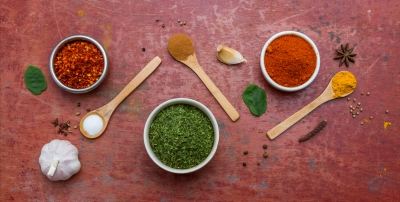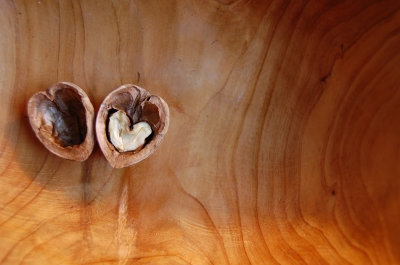Five Easy Ways to Improve Your Heart Health
Contributed by Ryan Peterson.

It’s estimated 33% of Americans have hypertension which contributes to heart problems. Not only that, cardiovascular disease is cited as one of the most common causes of death, with 17.3 million deaths each year. There are steps you can take to keep your heart healthy. First, avoid the obviously unhealthy choices, such as cigarettes and alcohol. They may feel like they help you unwind and relax, but in terms of your body chemistry, they are actually causing your body stress and damage. Second, incorporate healthy behaviors into your daily routine.
Improve Sleep Patterns
A big part of maintaining a healthy heart is improving the supporting conditions around heart health. That includes being active and eating a heart-healthy diet, but it also means getting enough good quality sleep. Poor sleep increases the risk of heart disease and contributes to many of the conditions around it, such as obesity, high blood pressure, and diabetes.
Get Active
Continue reading10 Heart Healthy Cooking Tips
 With some heart healthy cooking, you can still enjoy delicious meals on a heart healthy diet. Plus, you don’t have to follow some strict “diet”. Many times you just need to tweak what you are already eating.
With some heart healthy cooking, you can still enjoy delicious meals on a heart healthy diet. Plus, you don’t have to follow some strict “diet”. Many times you just need to tweak what you are already eating.
Here are 10 tips for heart healthy cooking.
#1 Replace processed grains with whole grains
This involves more than just switching to whole grain bread. Select whole-wheat flour, whole cornmeal, quinoa, and oatmeal to boost fiber intake. Also, look at the pasta and rice your purchase. Select whole grain pasta and brown rice for heart health. Some whole grain products take a little bit longer to prepare than their processed counterparts. Keep this in mind as you make the switch.
#2 Eliminate salt and watch for hidden sodium sources
Many canned and processed foods are high in added sodium. Read labels and select options that have “No Added Salt”. You can also reduce sodium content of canned vegetables by rinsing them in cold water prior to preparing. Take the salt shaker off the table to break a habit of salting your foods before you even try them.
#3 Eat more fruits and vegetables
Prepare well balanced meals that include plenty of fruits and vegetables. Every meal should have a fruit and/or vegetable and it’s okay to eat more than one serving. The DASH (Dietary Approaches to Stop Hypertension) Diet recommends 4-5 vegetables each day AND 4-5 servings of fruit daily.
#4 Use nonfat yogurt in place of sour cream Continue reading
Almonds for a Healthy Heart
 In previous posts we’ve covered the health benefits of a couple different nuts:
In previous posts we’ve covered the health benefits of a couple different nuts:
Heart-Smart Pistachios
Walnuts Equal Healthier Blood Vessels
Nuts are an excellent source of nutrients that provide heart health benefits, such as fiber, protein, and certain minerals.
Let’s turn our attention to almonds.
Almonds are a good source of monounsaturated fat. This is a heart healthy fat in that it does not cause an insulin response or lead to increases in blood cholesterol. A study has shown a decrease in cholesterol levels, including LDL cholesterol, when almonds are consumed as a regular part of the diet.
Almonds also provide vitamin E in the form of gamma tocopherol and glutathione. Both of these nutrients act as antioxidants to prevent cellular damage associated with free radicals.
Almonds also contain calcium to support bone and tooth health, along with healthy blood pressure levels.
A one-ounce, 164-calorie serving of almonds, not only provides vitamin E, monounsaturated fats, and calcium, but also magnesium, fiber, protein, potassium, phosphorus, and iron.
Add Almonds to Your Diet
Here are a few tips for adding almonds to your diet:
Continue reading
Lower LDL Cholesterol with Pistachios
I think it’s fairly well known that walnuts provide some heart health benefits, but were you aware pistachio’s can be a good choice as well?
Pistachios are a good source of many nutrients, vitamins, and minerals.
A 1 ounce (28 grams) serving of pistachios provides:
170 calories
6 grams protein
2.9 grams fiber
73.4 mg omega 3 fatty acids
59.9 mg phytosterols
Pistachios are also a good source of copper, manganese, vitamin B6, thiamin, magnesium, and phosphorous. They also provide lutein and zeaxanthin, two carotenoids associated with a lower risk of age-related macular degeneration.
But, how do pistachios positively impact cholesterol and heart health?
Heart Health – Eat Walnuts for Healthier Blood Vessels

A recent study found walnuts linked to improved cardiovascular health due to improved function of the endothelium (inner lining of blood vessels) in those with type II diabetes.
Not only was the walnut addition linked to improved endothelial function, but participants also experienced increased fasting serum glucose levels, reduced LDL cholesterol, and lower total cholesterol.
Back in 2004, the US Food and Drug Administration (FDA) approved a label claim for walnut packages:
“Supportive but not conclusive research shows that eating 1.5 ounces of walnuts per day, as part of a low saturated fat and low cholesterol diet, and not resulting in increased caloric intake may reduce the risk of coronary heart disease.”
One thing to keep in mind when it comes to walnuts (and nuts in general) is calories! Nuts are not low in calories, so you must watch your portion size. Going overboard can lead to weight gain and counteract the heart health benefit of adding walnuts to your daily diet. A 1.5 ounce serving of walnuts provides ~278 calories. There are approximately 20 walnut halves in a 1.5 ounce serving.
Here are a few simple ways to add walnuts to your daily diet:
- Sprinkle chopped walnuts on oatmeal or breakfast cereal
- Mix walnuts with dried fruit for a nutritious snack
- Add toasted walnuts to a salad or pasta dish
Do you eat walnuts regularly?
All the best,
Lisa Nelson RD
How to Lower Cholesterol in 8 Simple Steps
http://www.lowercholesterolwithlisa.com
Image courtesy of Aleksa D / FreeDigitalPhotos.net
Lower Cholesterol – Top Omega 3 Sources to Lower Cholesterol
If you have been following along, you know from the article "Get a Grip on Fatty Acids" that the right ratio of omega 6 to omega 3 fatty acids promotes a lower cholesterol.
The goal is not to cut omega 6 fatty acids (such as corn oil, beef, and chicken) completely from the diet, but to achieve a ratio of 4:1 or 1:1 omega 6 to omega 3. In order to attain this ratio you need to increase your omega 3 intake.
Your options for doing this:
1. Eat fish at least twice a week.
If you like fish, this would be my first choice. Fish contains DHA. Research is starting to indicate health benefits, such as lower cholesterol, lower triglycerides, and higher HDL (good) cholesterol, linked to DHA alone. Be aware of mercury content of fish, especially if you are pregnant.
2. Take a fish oil supplement.
Start with the smallest bottle you can find and make sure you do not have the unpleasant side effect of burping with a fishy aftertaste. Not everyone has this problem, so you may be fine. To decrease likelihood of this problem I recommend taking the supplement and then eating. That way something is "on top" of the fish oil. Fish oil has a tendency to go rancid, so keep supplement refrigerated, especially if you buy a bottle of 250 or more.
3. Flaxseed.
You can buy flaxseed two different ways – whole seed or ground. In order for the body to utilize the omega-3 fatty acids, flaxseed must be ground. If the flaxseed is not ground it passes straight through the body without being absorbed. Flaxseed is high in fiber, so by ingesting whole flaxseed you have increased your fiber intake, which is beneficial, but if you grind your flaxseed you will have the added benefit of increasing your omega-3 fatty acid intake and lowering cholesterol.
4. Flaxseed oil supplement.
Provides the omega 3 fatty acid ALA in a simple supplement. Now, ALA is not as effective as DHA and EPA at lowering cholesterol, but still results in an improved ratio of omega 3 to omega 6. Again, may go rancid so refrigerate.
5. Add omega 3 nut and seed sources to your daily intake.
Especially walnuts, pumpkin seeds, Brazil nuts, and sesame seeds. Nuts are high calorie, so watch your intake. If you gain weight, you are not doing your heart any favors!
Access the ecourse How to Lower Cholesterol in 8 Simple Steps HERE.
All the best,
Lisa Nelson RD



